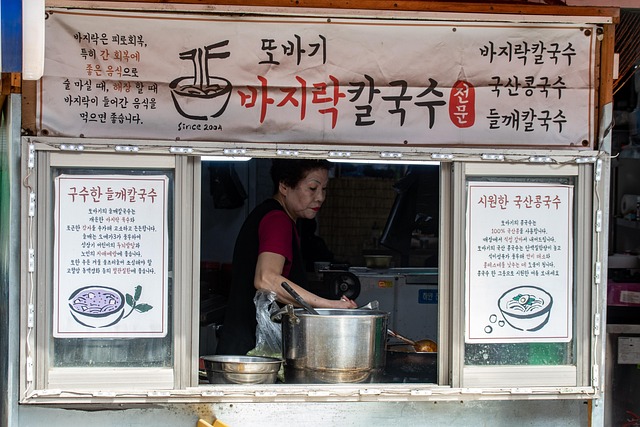In the childcare industry, childcare industry compliance is paramount for child safety. License verification ensures caregivers meet stringent qualifications and standards through first aid, CPR, and special needs training. Accessing centralized licensing databases allows for easy background checks, empowering parents to make informed decisions. Regular updates, audits, and cross-referencing maintain high safety standards, fostering transparency and trust among families, and ultimately promoting the well-being of children.
In the dynamic landscape of the childcare industry, ensuring comprehensive compliance is paramount for maintaining safe and nurturing environments. Verifying childcare professionals’ licenses and credentials is a critical step toward this goal. This article guides you through essential aspects of license verification, from understanding its importance to accessing licensing databases, implementing effective processes, and staying updated on ongoing compliance requirements. By adhering to these practices, we can foster a culture of safety and quality within the industry.
- Understanding the Importance of License Verification
- Identifying Required Credentials for Caregivers
- Accessing and Interpreting Licensing Databases
- Implementing Effective Verification Processes
- Staying Updated: Ongoing Compliance in Childcare
Understanding the Importance of License Verification

In the childcare industry, ensuring compliance and safety is paramount. Verifying the licenses and credentials of professionals is a critical step in maintaining high standards. It’s not just about checking a box; it’s about safeguarding the well-being of children under their care. A thorough verification process ensures that those working with children meet the necessary qualifications, skills, and background checks, minimizing potential risks.
License verification is an essential tool for parents and caregivers to make informed decisions. It provides transparency and peace of mind, knowing that their chosen childcare provider is legitimate and competent. By upholding strict compliance standards, we can foster a trustworthy childcare industry, promoting environments where children can thrive and grow.
Identifying Required Credentials for Caregivers

In the childcare industry, ensuring compliance is paramount for the safety and well-being of children under care. Identifying the required credentials for caregivers is a crucial step in this process. Potential parents or guardians must verify that each professional possesses the necessary licenses and certifications specific to their region. These typically include basic first aid and CPR training, which are essential for responding to emergencies. Beyond these foundational requirements, specialized credentials may be needed depending on the age group and care settings. For instance, working with infants requires additional qualifications in neonatal resuscitation and pediatric first aid.
Caregivers interacting with children with special needs or those having medical conditions must demonstrate expertise in handling such situations. This could involve certifications in specific therapeutic approaches or advanced first aid training. Furthermore, regular updates on these credentials are vital to maintain current industry standards and keep up with evolving best practices within the childcare industry compliance framework.
Accessing and Interpreting Licensing Databases

Accessing licensing databases is a critical step in verifying childcare professional licenses and credentials, ensuring compliance within the childcare industry. These databases serve as centralized repositories for up-to-date information on licensing status, allowing for efficient background checks. Many states and regions maintain their own digital platforms where licensed childcare providers are listed, making it accessible for employers and parents to verify a caregiver’s qualifications with just a few clicks.
Interpretation of the data found in these databases is key. Parents and caregivers should look for active licenses that indicate the provider has met all necessary requirements, including education, training, and background checks. Additionally, verifying the expiration dates ensures current compliance. By utilizing these resources, families can make informed decisions, fostering a culture of transparency and accountability within the childcare industry.
Implementing Effective Verification Processes

In the childcare industry, ensuring compliance and safety is paramount. Implementing effective verification processes for professionals’ licenses and credentials is a critical step to safeguard children’s well-being. These processes should be thorough, systematic, and up-to-date to account for changes in regulations and professional qualifications. Regular audits and cross-referencing with authorized databases ensure that all staff members are appropriately licensed and certified, reducing potential risks and providing parents with peace of mind.
To maintain high standards, childcare centers must adopt robust verification practices. This includes meticulously documenting and tracking licenses, conducting periodic renewals, and staying informed about any updates or revocations. By integrating these measures, the industry can foster an environment where qualified professionals prioritize children’s safety and development, aligning with broader childcare industry compliance standards.
Staying Updated: Ongoing Compliance in Childcare

In the dynamic and ever-changing childcare industry, staying updated on compliance requirements is paramount. Childcare professionals must continuously verify and update their licenses and credentials to meet the evolving standards set by regulatory bodies. This ongoing compliance process ensures that children are in safe and capable hands, fostering trust among parents and guardians.
Regular updates are necessary due to changes in laws, best practices, and educational standards. Caregivers should stay informed about any new regulations related to health and safety, background checks, and child development training. By adhering to these compliance measures, the childcare industry can maintain high-quality services, promote child well-being, and enhance parental peace of mind.
